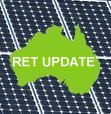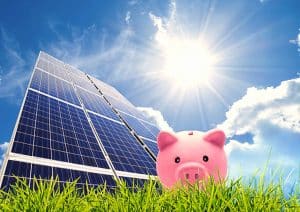After last minute amendments to satisfy all parties, long awaited changes to Australia’s Renewable Energy Target were finally passed on Thursday, changes some are calling the biggest climate change reform in Australia’s history.
The enhanced Renewable Energy Target (eRET) will be split into the Small-scale Renewable Energy Scheme (SRES) and the Large-scale Renewable Energy Target (LRET) from January 2011.
Clean Energy Council Chief Executive Matthew Warren said the changes would unlock more than $20 billion in investment in large scale projects while creating a stable growth path for smaller projects such as residential solar power and solar hot water.
There were some immediate effects of the eRET legislation being passed. AGL Energy Ltd. had put a major wind project on hold prior to the changes, but according to BusinessWeek, now plans to fast track their $800 million Macarthur wind farm development.
Not all corners are smitten with the eRET. The Australian Solar Energy Society (AuSES) warned prior to the legislation passing that eleventh hour amendments made to the legislation in order to push it through gives a mechanism for the Government to alter the price of renewable energy certificates (RECs) paid to small scale solar and this will create uncertainty for the industry.
John Grimes, the Chief Executive Officer of AuSES, said if the Government sticks to the 6 million REC target outlined in the legislation, it is likely that the REC price paid in 2015 would be far under the guaranteed rate of $40 the eRET will commence with in 2011.
The enhanced Renewable Energy Target is estimated to cut Australia’s greenhouse emissions by around 380 million tonnes and to deliver 45,000 gigawatts of clean energy generation by 2020.







































